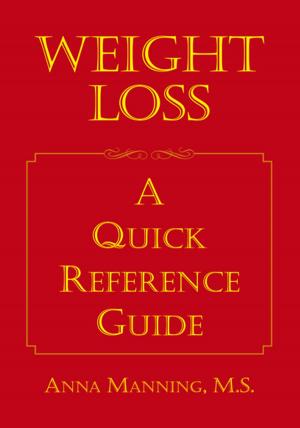Doctor, Why Do I Feel Drained and Oh So Tired
Nonfiction, Health & Well Being, Medical, Ailments & Diseases, Diseases, Patient Care, Nutrition| Author: | Patrick Van Eeghem | ISBN: | 9781370974160 |
| Publisher: | Patrick Van Eeghem | Publication: | November 16, 2017 |
| Imprint: | Smashwords Edition | Language: | English |
| Author: | Patrick Van Eeghem |
| ISBN: | 9781370974160 |
| Publisher: | Patrick Van Eeghem |
| Publication: | November 16, 2017 |
| Imprint: | Smashwords Edition |
| Language: | English |
When the body is in a stress condition, it will fight to stay in balance. In order to fight, the body needs a lot of energy. The energy for the body is sugar. To provide the body with the necessary sugars, the adrenal glands will produce more cortisol. The hormone cortisol will take care of enough sugars in the bloodstream.
When the stress conditions repeat over many years, the adrenal glands again and again will produce more cortisol. After a time, the adrenal glands will not be able to manage the needs for the fighting body and get exhausted. The less cortisol is produced, the less sugars are released in the blood. This means less energy for the body. The body becomes tired and weakened for a long time.
Cortisol is also important for slowing down and resting the immune system after the immune system has attacked invaders. When the adrenal glands are weakened, less cortisol is produced. Less cortisol means the immune system is not more slowed down after an attack. The immune system remains hyperactive and attenuates over time. This leads to more infections, more allergies and even autoimmune diseases. A weakened immune system has also consequences for the intestine. Indeed, about 80% of the immune system is localised in the intestinal wall. There, the immune system will defend the body against viruses, bacteria etc, present in the food and which will try to enter the body from the intestine. When the immune system is weakened, the intestine is disturbed. The intestinal flora change and the harmfull bacteria are now in the majority. These bacteria produce toxic gases which intoxicate the intestine and the digestion. As a consequence, the gut becomes a leaky gut. Poor digested food leaks now from the intestine into the blood. The immune system will react on the food residues and food intolerances will arise. The book shows that all the organs and systems together form a whole.
There are many factors that give rise to chronic stress for the body. The known and less known factors are discussed. These factors include infections, toxic factors such as chemicals, heavy metals and radiation, emotional stress and high sensitivity. They all disrupt the limbic system that drives the vegetative nervous system, the hormonal system and the immune system. In other words, all systems in the body are even more disturbed and one becomes more ill.
When the body is in a stress condition, it will fight to stay in balance. In order to fight, the body needs a lot of energy. The energy for the body is sugar. To provide the body with the necessary sugars, the adrenal glands will produce more cortisol. The hormone cortisol will take care of enough sugars in the bloodstream.
When the stress conditions repeat over many years, the adrenal glands again and again will produce more cortisol. After a time, the adrenal glands will not be able to manage the needs for the fighting body and get exhausted. The less cortisol is produced, the less sugars are released in the blood. This means less energy for the body. The body becomes tired and weakened for a long time.
Cortisol is also important for slowing down and resting the immune system after the immune system has attacked invaders. When the adrenal glands are weakened, less cortisol is produced. Less cortisol means the immune system is not more slowed down after an attack. The immune system remains hyperactive and attenuates over time. This leads to more infections, more allergies and even autoimmune diseases. A weakened immune system has also consequences for the intestine. Indeed, about 80% of the immune system is localised in the intestinal wall. There, the immune system will defend the body against viruses, bacteria etc, present in the food and which will try to enter the body from the intestine. When the immune system is weakened, the intestine is disturbed. The intestinal flora change and the harmfull bacteria are now in the majority. These bacteria produce toxic gases which intoxicate the intestine and the digestion. As a consequence, the gut becomes a leaky gut. Poor digested food leaks now from the intestine into the blood. The immune system will react on the food residues and food intolerances will arise. The book shows that all the organs and systems together form a whole.
There are many factors that give rise to chronic stress for the body. The known and less known factors are discussed. These factors include infections, toxic factors such as chemicals, heavy metals and radiation, emotional stress and high sensitivity. They all disrupt the limbic system that drives the vegetative nervous system, the hormonal system and the immune system. In other words, all systems in the body are even more disturbed and one becomes more ill.















